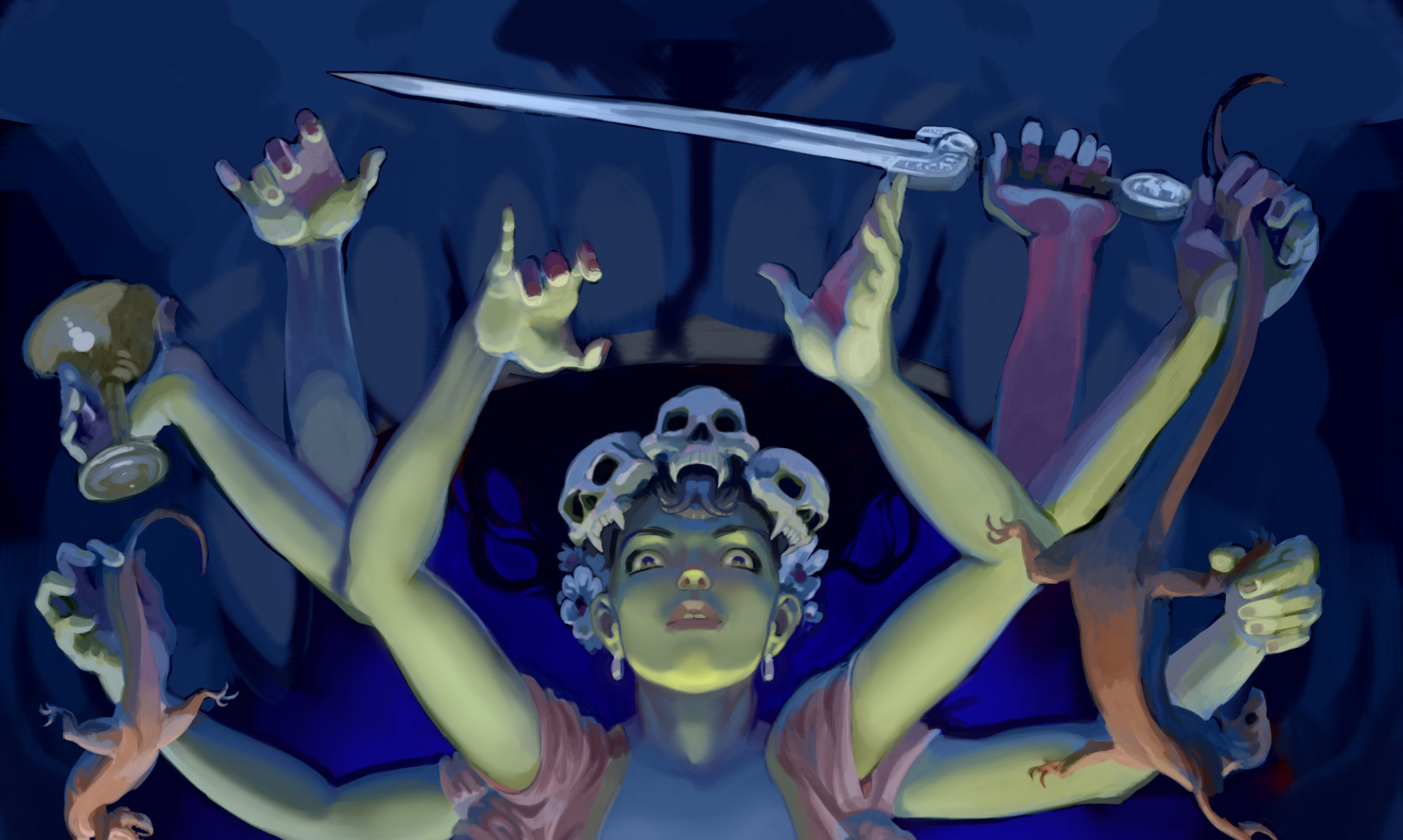Game Retail is screwed up in so many ways. Buying used games works out if you’re interested in titles that sell well initially; games that have enough of a marketing push behind them to motivate a large number of buyers, in other words, mainstream games.
If you want a copy of Madden or Halo used, you’ll have plenty to choose from. But say you’re looking for a game that’s a little more unusual, or merely produced by a studio whose distributor failed to market their game well, if at all? Good luck trying to find one of those games 3 weeks after launch, new OR used. Shelf space is extremely valuable in game stores, and the vast majority of buyers aren’t the type of folks who keep track of previews, reviews and release dates. So the gamer who shows up to buy Call of Duty 2 may never have heard of Godhand, and will certainly never see the one copy sitting in the corner on the bottom shelf. If there’s a copy there at all.
Oh well, their loss, right? Except the result is a system that helps sell games that don’t need help selling, and shuts out all the others. The result in the long run is an industry where creativity and innovation are punished. This is not in my interests as a gamer who prefers new experiences to old ones with updated graphics. Additionally, the Madden and Halo buyers are already gamers. How do we encourage more, different people to take up gaming? There needs to be games that they want to play. Perhaps the mainstream gaming demographic is already saturated; we need different games to attract different demographics. If gaming as an industry doesn’t continue to find new, different consumers, it will remain socially marginalized and stigmatized.
Granted, gaming isn’t nearly the fringe activity it once was, but it still hasn’t gained the ubiquity of film, music or television. I look forward to one day being able to fill my game collection with the equivalent of, say, art house films, and never have to play a “mainstream hollywood blockbuster” ever again.
Games these days are much more mainstream than they used to be, but still have a long way to go before they match the kind of ubiquity and variety that you find in film, music, or television. Personally, I look forward to the day when I have the kind of variety of experience available when I game that I do when I listen to music or watch a dvd.
To that end, I think used video games are a good thing. I also think that pirating games is a good thing, though of course not necessarily to the designer.
I once was a penniless but avid gamer. Used games, and yes pirated games as well kept me a gamer, when my alternative was not gaming at all, or only gaming around Christmas and my birthday. Lots of folks pirate or buy used when they have the means to buy new, but I’d rather not throw out the baby with the bathwater. I want to see more people game, and more people try games that they may not be sure about– sure enough to pay full price new for. I want to see unusual games sell well, and they won’t until people put down their Madden or Halo and give it a try. Most folks don’t want to gamble their $60 on a game they don’t know they’ll like. (We’ve all seen the GameFly commercials, right?)
However, I have friends in the game industry. So buying used games feels a lot like stealing from them. Fortunately, I have a job, so I can afford to buy new, and I can afford to “vote with my dollar” to encourage designers to design and publishers to publish the kind of games I want to play.
So yes, buy used, even from a company as nasty as Wal-Mart. Pirate games if you have to. At least occasionally by a new game, to support your favorite developer. As long as more people play more games, our favorite hobby can only get better.
Postscript: Worrying about ecological effects of shipping & handling from Amazon is a moot point. After all, wasn’t the game you bought at Wal-Mart shipped to that store? If you’re wanting to reduce your footprint, downloading the game probably has less impact on the environment. There’s also less waste in terms of packaging. But of course, if you’re using electricity, you’re contributing to ecological harm (where does your electricity come from?)

